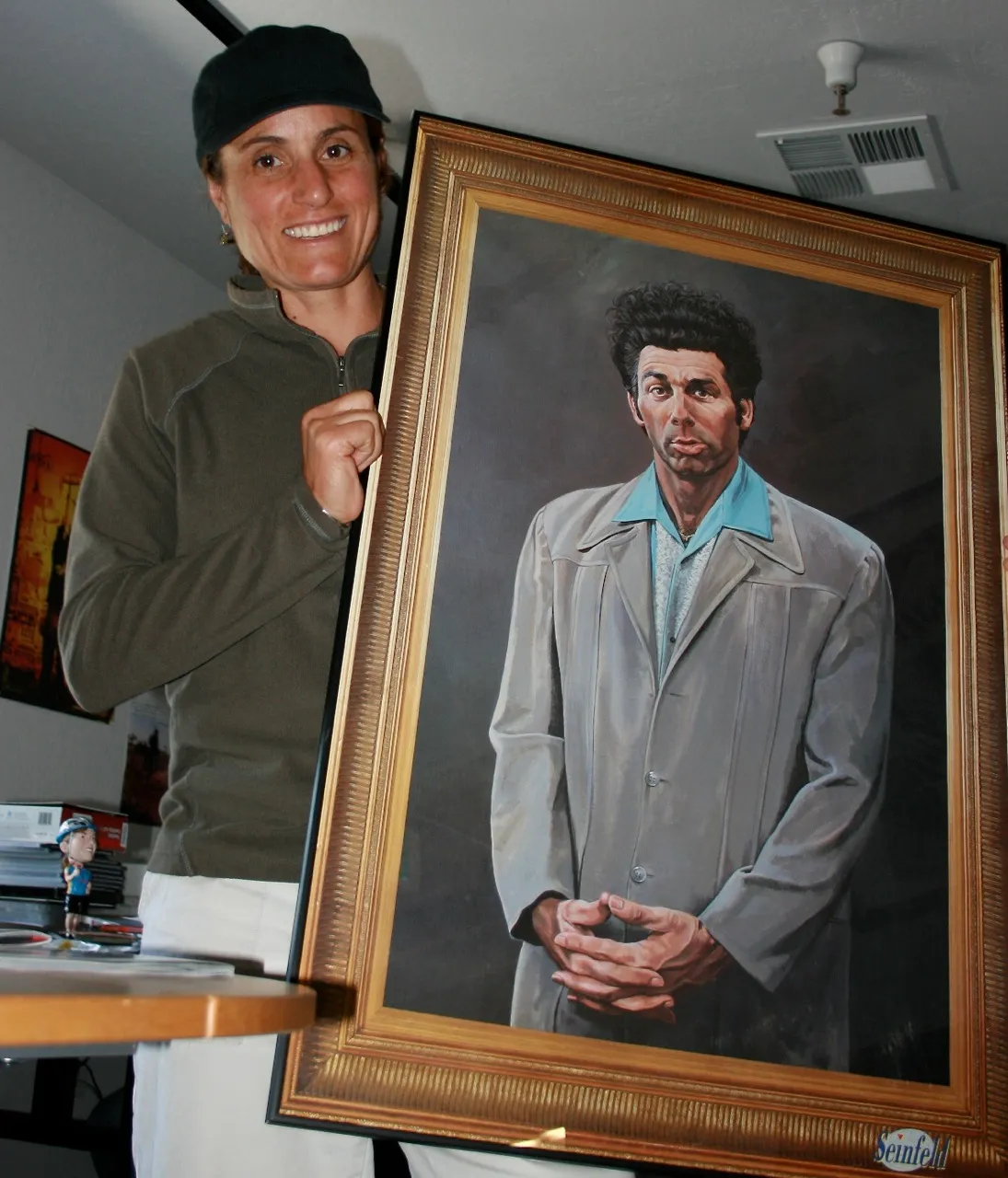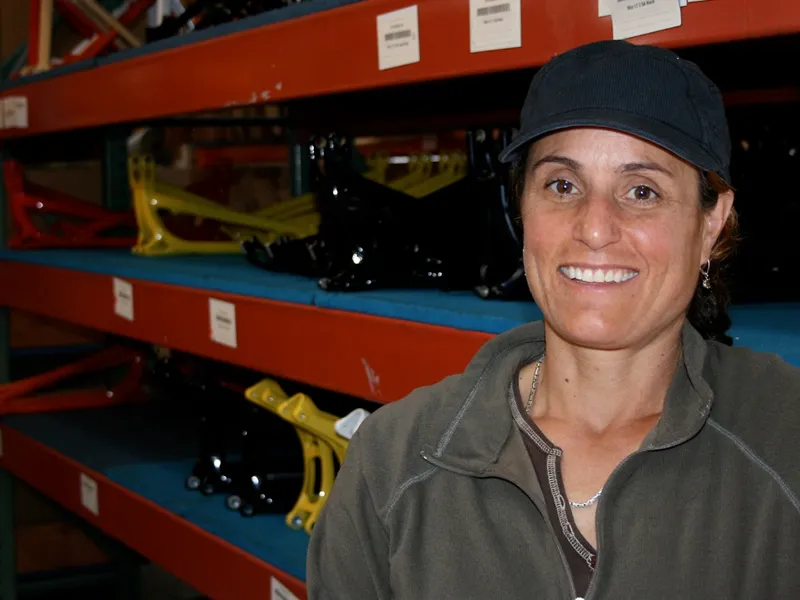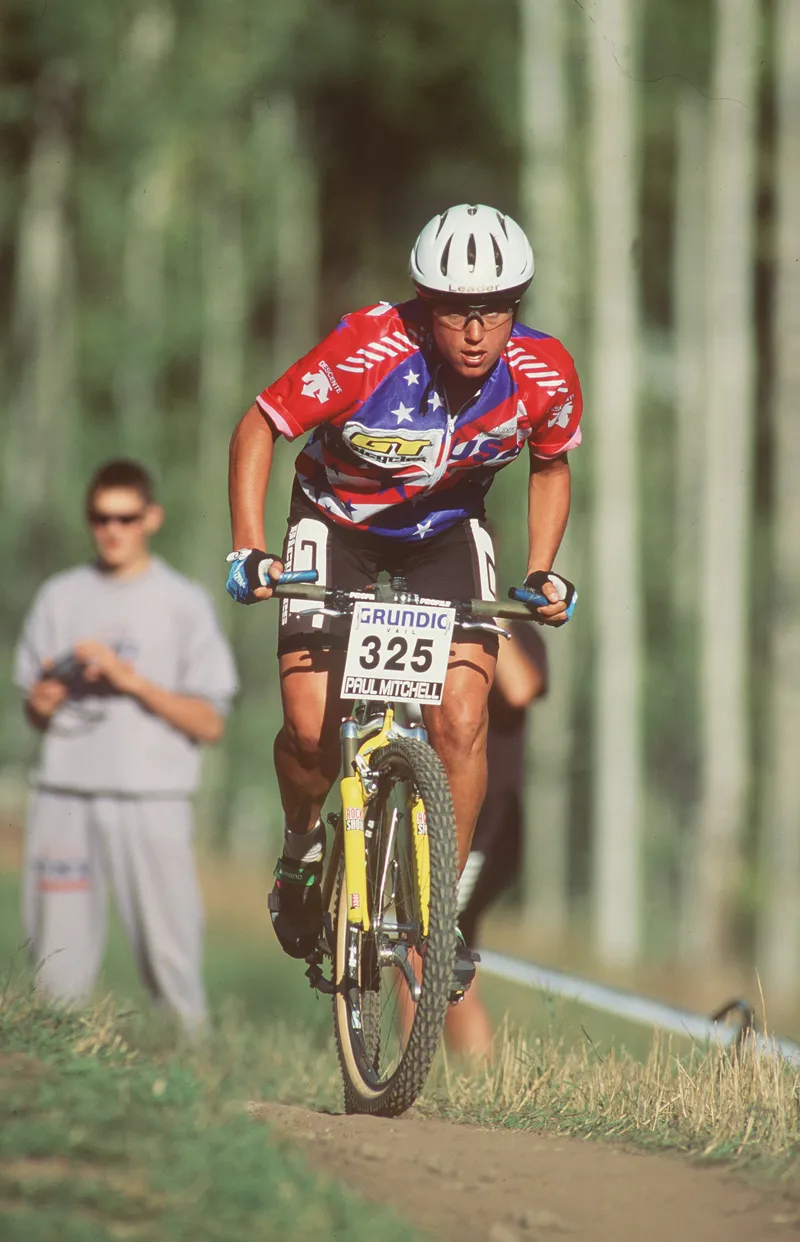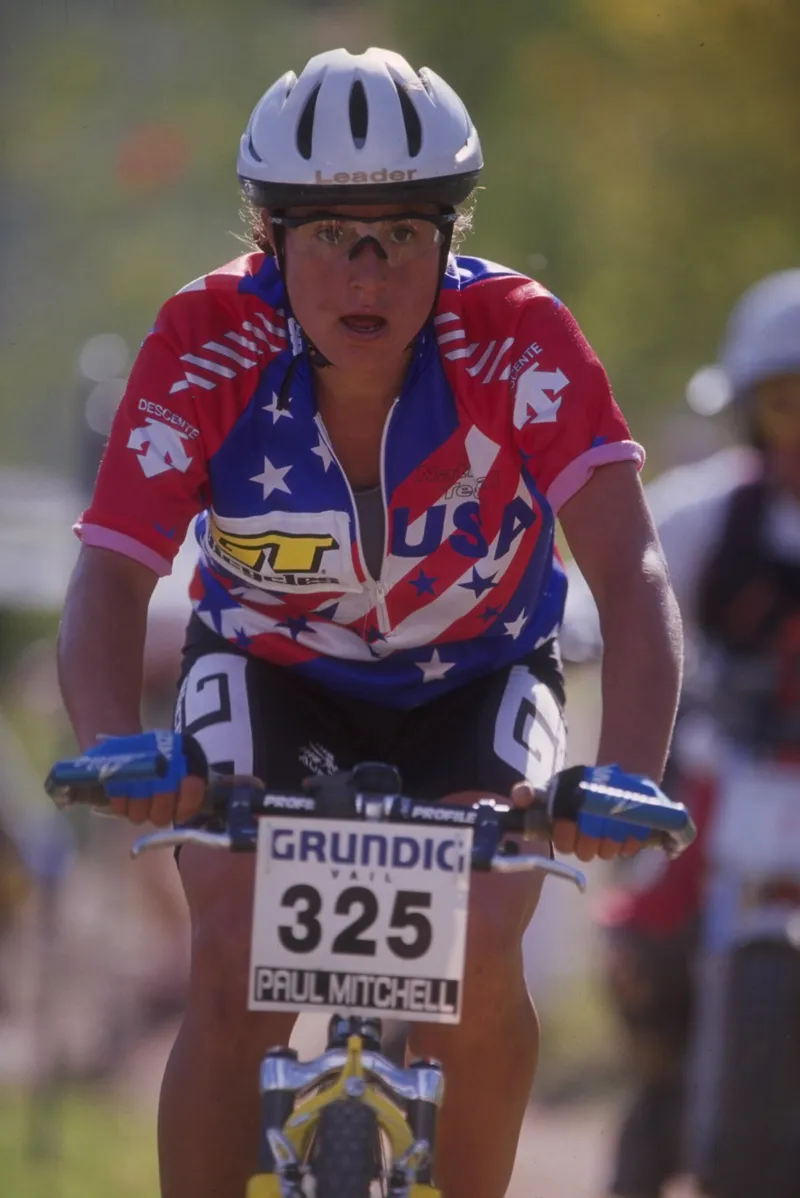New York native Juliana Furtado was a dominant force in the world of mountain bike racing in the early Nineties, until she was diagnosed with lupus.
Now 42, she works part-time as grass-roots marketing co-ordinator for Santa Cruz Bicycles. BikeRadar sat down with Furtado to find out how she's been coping with life after racing.
The daughter of a jazz pianist, Furtado was a former competitive skier who switched to bike racing in 1989 after several knee operations. She began her winning streak with a victory in the 1990 elite women’s Cross-Country World Championships in her ‘hometown’ of Durango, Colorado riding for Yeti, and went on to win three World Cup series, five national championships and an astonishing 12 consecutive races in 1992-93 for GT.
BikeRadar: How hard was it psychologically to compete at the highest level? How did you deal with the void after you retired?
Juli Furtado: It was hard! That’s why you see so many elite athletes return after they’ve been at the top. They miss that – it’s totally understandable.
At first I was having fun, just hanging out in Santa Cruz, doing all the Santa Cruz things. I was thrust into retirement. My original plans were a lot different. I was only racing five years when I retired.
I wanted to deal with sports in general. I’m a sports nut, not just someone into cycling. I planned to open my opportunities with an Olympic gold. I was 29 when I retired in 1997. I wasn’t contemplating retirement.
My last year was so hard. I had to go through a major healing process. I had to come to grips with how my racing career fizzled out. Here I was, 30 years old and ‘retired’.
At first it felt good not to have the pressure that goes with the highs of winning. Athletes are super pampered at that level. The transition was made easier being in Santa Cruz versus Durango. I rode the wave of ‘cruising’ and not missing it to the degree I would have if I lived in Durango. Never had an inkling of un-retiring.
I remember, vaguely, thinking about what I’d do after retiring. To me, it was like jumping into a really cold lake. I’m chicken by nature, and usually like going into the cold waters slowly. It was so hard going into the post-race life.
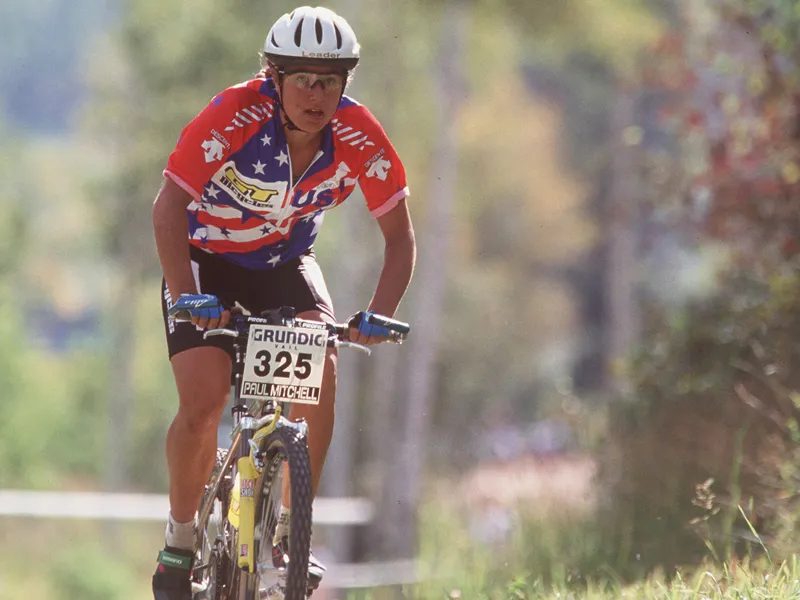
Another hard thing for retiring athletes is the age thing. Most regular folks retire at 55 or 62 or whatever, not 30 or 35. Athletes come back because they miss having 60,000 cheering fans calling their name, like Brett Favre [former quarterback with the Green Bay Packers and New York Jets].
He made the game fun when he was with the Packers...
Totally! But he blew it when he went to the New York Jets!! He went down 100 notches in my book; his whole prima donna shit was nuts. He really didn’t do his Packer legacy any service by going to the Jets. He never apologised once when he unretired for whatever reason he gave for coming back.
You’re quite the renaissance person compared to most athletes, Juli. Your interests are wide and varied beyond cycling...
Oh yeah! And there are some retired cyclists who’ve committed suicide because they couldn’t handle it.
I remember someone telling me before the 1990 World’s in Durango that whoever wins the championship doesn’t need to get a college degree. I had another year left, and I intended on getting my degree.
When and why did you move to Santa Cruz from Durango?
Twelve years ago, a long time, I had just decided to retire. I still owned two houses in Durango. I came out to California with my two animals to train, and ended up living with (RockShox co-founder) Steve Simons and his wife in San Jose. I was getting tested all the time when I got sick, and that was a good home base for me.
I didn’t want to go back to Colorado at that point. I went to college in Boulder and lived there quite a while. I was going to rent a house here, but I bought something with (RockShox co-founder) Paul Turner, and I haven’t left Santa Cruz. I wanted something totally different.
Do you have a sense of wanderlust?
No, not really. I was just going through such a huge change and just wanted to live on the coast, cruise around on a cruiser bike, not talk about biking, just being in a totally trippy place. Totally different than Durango. Surfing… It was essentially a change to get away from cycling for a while.
How has living with lupus changed your outlook on life?
I’ve been healthy for a while now; I don’t think about it, really. I view it as the reason I had to stop racing. I had to leave competitive skiing after several knee operations, and lupus forced me away from mountain bike racing. I’ve accepted it now, although the 1996 Olympics was dismal for me.
What’s it like day-to-day? Do you regulate your diet or take medication?
I took medication for a while. Lupus is like multiple sclerosis. Once I stopped racing it helped, with just a few flair-ups since. I feel like I haven’t felt the after-effects of it. Lupus is worse for men; I remember after I got diagnosed (American broadcast journalist) Charles Kuralt died of it. I stopped going to the doctor after a while, I stopped taking medication once I knew it wasn’t fatal and it wasn’t going to affect my kidneys. It’s like having the flu. The year before and during the Olympics was when I felt it the most; I certainly felt it after retiring.
Have you lost any of your legendary intensity?
Huh! I don’t feel like I was intense! I also felt like when I was racing I could joke with spectators and competitors… telling Susan DeMattei a joke on the start line at the Olympics…
I feel that when I got the nickname ‘the Terminator’ – or whatever – the year I won everything, I feel people assigned me a name despite how I approached things.
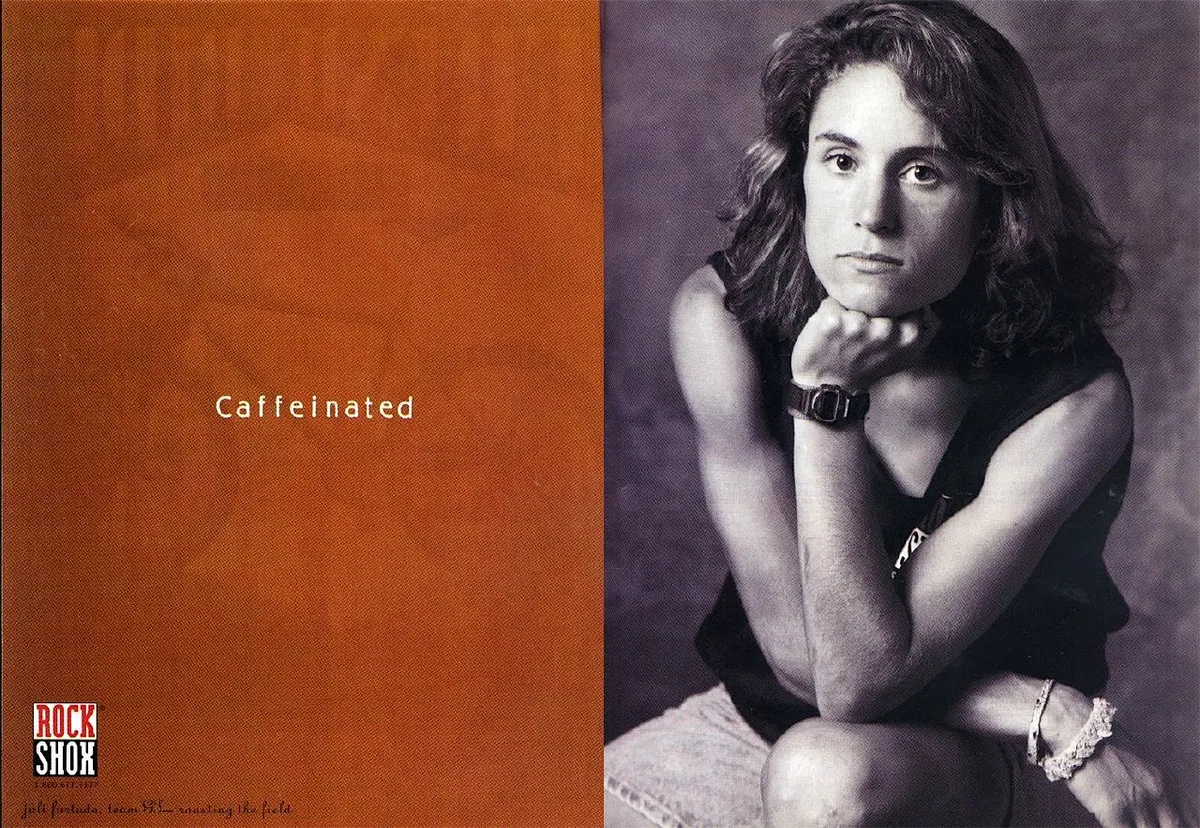
So the real Juli wasn’t as intense as they made you out to be?
I guess it’s the definition of intense that we’re talking about here! I’d say that Alison Sydor was more of an intense racer than me. I would quantify my behaviour as more outside the norm.
What’s it like being a mom?
It’s awesome. I totally, absolutely love it. Wyatt is 14 months old. I’m on the older side for being a first-time mom.
For a while you were the best mountain bike racer you could be. What steps are you taking to make sure you’re the best mom you can be?
I feel lucky, really. When I was pregnant I had so many doubts about what sort of mom I would be. No issues at this point. I know I won’t be the best mom ever. This is how I live my life for Wyatt. I came up with an acronym: LOSH – love, opportunity, stability and humour. Then he’s going to be okay, and will become who he needs to become.
You like the silly stuff, eh?
Oh yeah! I don’t like being around people without a sense of humour! It’s torturous…
I don’t want to smother him. I do miss the mountains; it’s hard sometimes living at sea level. I’ve contemplated moving back east for something different. Real estate here is outrageous! I have a great house and property, but it’s pretty limited here. Kind of an open question for me.
Did you ride during pregnancy?
I did! Up until pretty late in the pregnancy, on fire roads. Pretty mellow, actually.
How quickly were you back on the bike?
I was back on my cruiser bike going to the movies days later. I couldn’t stand hearing people tell me what I could and couldn’t do when I was pregnant.
I knew the danger of surfing, so I gave that up, as well as trail running. I did a huge hike in Big Sur right before going into labour.
It certainly helps going into pregnancy fit and healthy…
Yeah, but it’s also very traumatic when one’s body goes into pregnancy. I felt crappy, which surprised me.
Were you concerned, being older and having lupus?
No, I figured it would be what it would be.
Harder than racing?
Yeah! But the first few months, every single second of the day, I felt like I had a terminal disease. Awful. No euphoria! It was terrible.
Do you find people you ride with expect you to be world-class-racing-fit?
I mostly ride and run alone, so not really. It’s more mellow out here than Durango.
Do you stay in touch with your former peer group from racing?
Elladee Brown [former Canadian national champion] is still my best friend, but no, I’ve not really kept in touch with the others.
I shy away from having to do events – no Sea Otter or Interbike for me if I can help it. Five years ago, maybe.
I want a purpose when I go to events, not just to talk about myself. I removed myself from that scene after leaving Durango. I don’t do Facebook, Twitter, yadda, yadda, yadda.
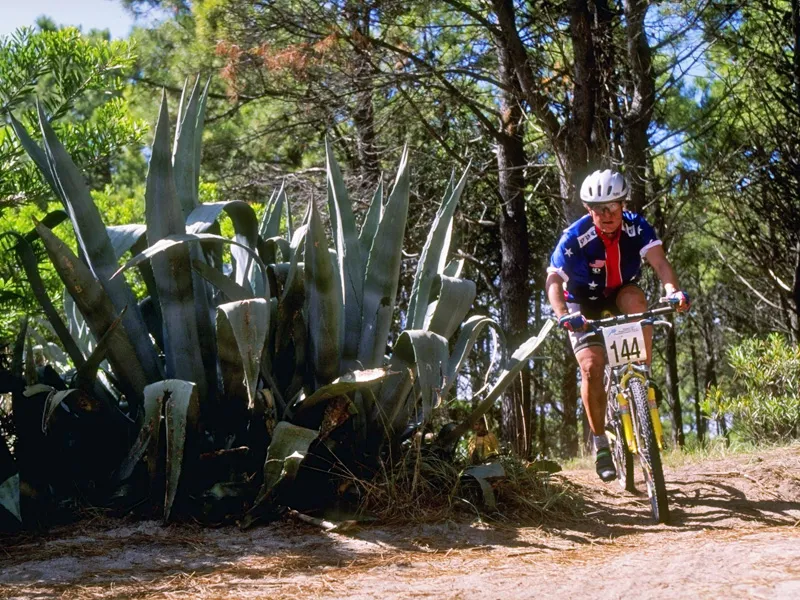
What do you think of all the performance enhancing drug use in cycling?
I’m not really involved in the sport any more, so I really don’t know. I can talk about sports in general. I have friends that think performance drugs should be legal, and I disagree… (pauses) It’s ubiquitous in all sports. Cycling’s getting hammered, right?
There have been several doping busts on the road racing side in the past few years…
The excuses you hear when people test positive are just comical. I think they should be handing out harsher sentences. Who’s the road guy who admitted to doping and is racing again?
David Millar?
Yeah. That’s so rare, to have someone confess like that then come back. I have no sympathy for those who were caught and continue to deny it.
All this random at-home testing is good – we didn’t have that when I raced. There was always suspicion when certain riders wouldn’t show up at certain races.
What’s your role at Santa Cruz Bicycles?
I’m part-time in grass-roots sponsorship/promotions. I process orders for Rob’s [owner Rob Roskopp] posse. I’ve been here five or six years now.
What has changed in cross-country racing since you raced? Do you follow it now?
My job is grass-roots marketing and sponsorship, which is truly local, a community thing. It’s not at the national level for me. I follow up when I get resumes. I don’t follow racing specifically. So many disciplines and classes now!
Now that NORBA
[America's National Off-Road Bicycle Association]
has died, they’ve opened up so many new categories: 4X, Super D…
Totally! It’s difficult to weed through the resumes. People list their results without including their age group or class! I usually go with the vibe I get from people when deciding on sponsorship.
What’s a typical ride like for you these days? Do you ride solo or with others?
Road and dirt, usually solo. I trail run quite a bit. I went riding this morning.
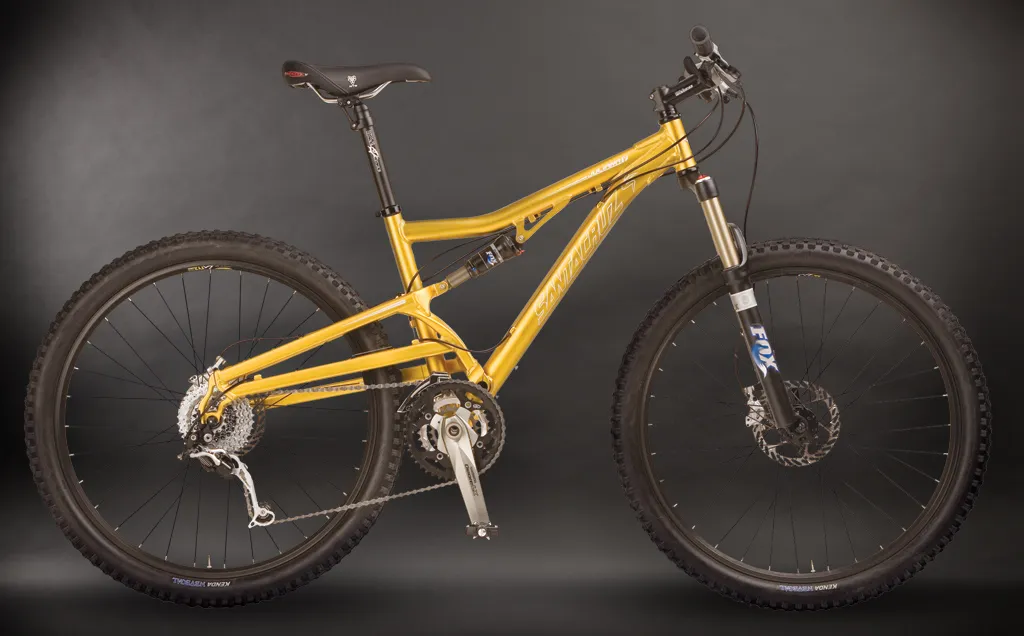
Is it kind of cool riding a bike with your name on it?
[Santa Cruz's women's model is called the Juliana]
Did you ever race full-suspension other than downhill?
Yeah (smiles). Never rode a full-suspension bike racing cross-country.
Full-suspension bikes were quite primitive back in the early to mid-90s…
Oh yeah!
Ever get requests to be a spokesperson for other companies?
Nah – people know I don’t like talking about myself. A lot of people enjoy being in the spotlight. I didn’t need it and don’t want it, really.
Nike ad with juli furtado
How many World Cup wins do you have?
No idea! I don’t know.
Which victory was the best for you, and why?
I’m horrible with these questions! The 1990 World’s in Durango. Who knows which direction my life would have taken if I hadn’t won? The resources that came after allowed me to do more.
Juli furtado winning the 1990 world's in durango
There are certain pre-race jitters to consider…
I had a ton of doubt lining up at every race. Nobody really sought that fact or noticed because I was winning. Everyone thinks world-class athletes imagine everything going right; I imagined everything going wrong. I didn’t fit that role.
I was always opposite how one would picture an athlete. That’s why the Olympic year was so hard for me. In my head, it was ‘well, I’m having a bad year because I was never really that good’. Maybe in my head I was always a ski racer who always had that doubt. It really mushroomed in 1996.
Which defeat was the hardest to take and why?
The `96 Olympics. I was also very bummed about never winning the cross-country World’s again after Durango [Furtado finished 10th in Atlanta behind Italian Paola Pezzo; American teammate DeMattei took third].
Back then the World’s were held so late in the season that the favourites didn't have that much gas left in the tank. Now they’ve bumped up the World’s…
I know! And that pisses me off! (laughs). My body couldn’t handle it back then.
Who were you closer to: Yeti owner John Parker or GT boss Richard Long? Richard’s motorcycle accident must have really impacted on the GT athletes and employees…
Parker. I loved Richard, but I only saw him once or twice a year. With Parker, well, Parker is Parker, so I saw him all the time.
Looking back, how would you do things differently with your racing career? Any bigger offers come in when you were with GT?
None that I can remember. The GT crew was great – Chantal Doucort, Doug Martin. I certainly would have taken the Pan Am Games more seriously. I just wanted to go to Argentina!
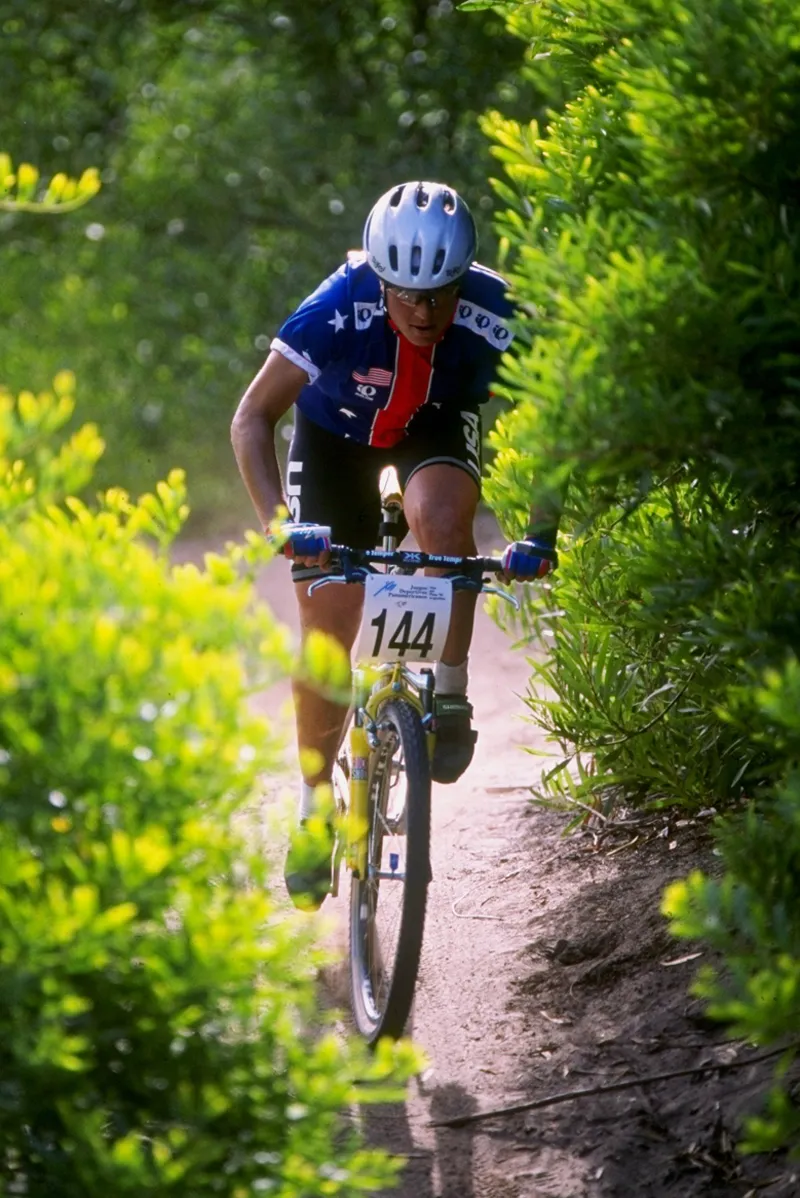
Looking back, I don’t think I should’ve done more downhill races, or change much of how I did things. Nope, not much I would have changed in hindsight.
One regret I had was not having control over my helmet contract. I wanted Giro soooo bad!
If you hadn't been a ski racer or bike racer, what would you have liked to do, and if you'd done it, how might your life be different?
A musician, a pianist. I think music is amazing. People who perform are on a whole other level. I took lessons for a while. My dad was a beautiful piano player, playing in clubs when we lived in New York.
Could you have made it as a musician?
No. Ninety percent of musicians are unemployed. I was fortunate to get into athletics. I got a skiing scholarship, and was paid to race skis at 14. I left Vermont for Colorado in a car I paid for with money from skiing. It gave me so much. A full scholarship to the University of Colorado. Don’t know where I’d be without that.
I worked hard and had talent but have no idea what my life would have looked like without sports. Maybe living in a trailer park in Vermont! Without my knee issues, I hadn’t planned to go to college. I’m super happy having a college degree, though.
What advice do you have for teenage girls aspiring to be the next Juli Furtado?
Have fun and keep your outside interests. Don’t get tunnel vision.
Did you have fun racing?
Totally; it was hard, but we had a ton a of laughs. I was lucky to get into the sport early on, at that point in my life, at that point in the sport. Cycling gave me a lot. I was lucky to be surrounded by a great crew: Doug Hatfield, Doug Martin, Chantal. I was lucky to be where I was when I was.
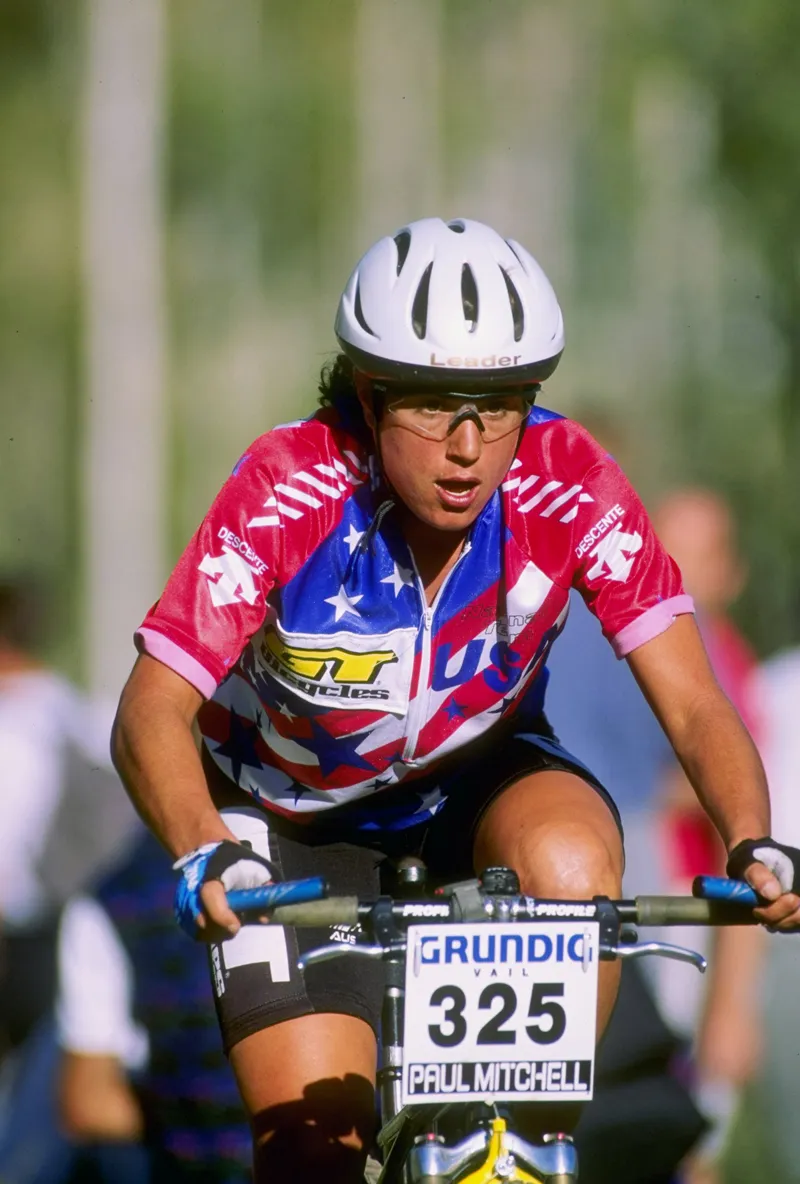
Did you invest your race career salary earnings wisely? Anything you would have done differently?
I did, actually. I was frugal. I did well with the homes I bought. I don’t believe in debt, so I always pay cash. Not perfect with the stock market, though.
I saved my money and didn’t just spend it foolishly, thank God. It gave me the luxury to live here and meander through at my own pace, figuring things out.
If you didn't have to work for a living, what would be your ideal life?
It looks like it is, really! I’m here at Santa Cruz Bicycles because I want to be here. I love the people.
[Santa Cruz laid off 40 percent of its workforce late last year, but owner Rob Roskopp decided to bring Furtado back right before Christmas ed]
(Santa Cruz CFO) Jon Forsberg called me back, and it was touching. My licensing agreement wasn’t changed beforehand. It was very sweet when I came back.
It seems like you’re living a charmed life, on your own terms…
Yeah, I think I am. Most of my friends have no idea about my past skiing or mountain bike racing. Many of them aren’t even athletic.
It’s hard for retired athletes not to have their past define who they are now. I just watched something with [former National Basketball Association pro] Dennis Rodman, who was really hung up on his past. Sad, really. I’m lucky to have not blown my money, to be working here, interacting with people I really like.
What other things are you involved with these days?
I’ve been involved in an African charity here called Firelight, and I raised funds for a wolf sanctuary in Idaho a few years ago.
I’m a huge movie goer, love crossword puzzles, still love my Peet’s coffee, but really love Caffe Bene here in town as well.
Now I’m involved in a location scouting business for advertising agencies with a friend. It’s perfect for me – plenty of flexibility. I have a hard time being pegged down. I’ve wondered about getting my master’s degree, but couldn’t stand being in a classroom that long.
After having huge success in skiing and bike racing, it’s hard to get back to reality that not everything has to be this huge, incredible success. That’s not normal life. I think resetting that is hard for many people.
I planned, upon retirement, to develop a television show a la Kramer. I wasn’t at the high-brow celebrity level. [Soccer player] Mia Hamm transcended her sport after winning gold in Atlanta. I didn’t reach that level. I knew a ton of people, but it took me a while to reach a base point of reality. I had to reset that.
What’s something most people wouldn’t know about you?
I’m a huge Seinfeld fan! When I retired I pretended I was Kramer! Really! I rented an office above Seabright Brewery and carried an empty briefcase. I’d sit on the deck drinking wine doing nothing, just like Seinfeld. It was hysterical!
